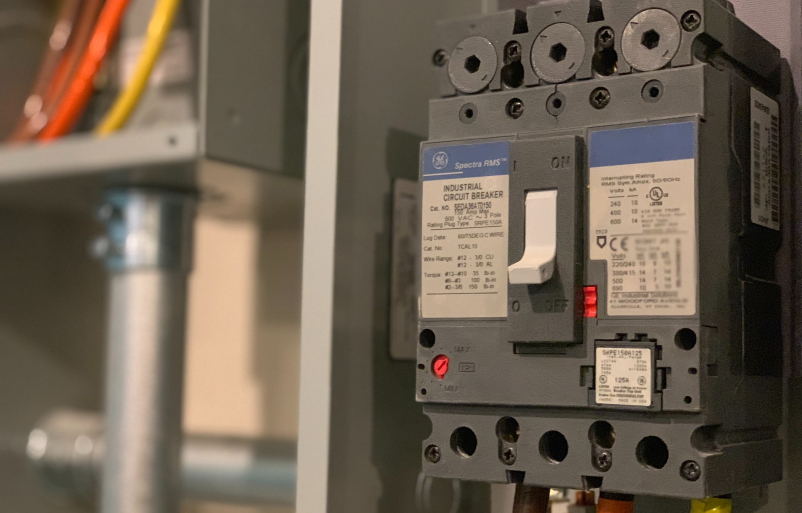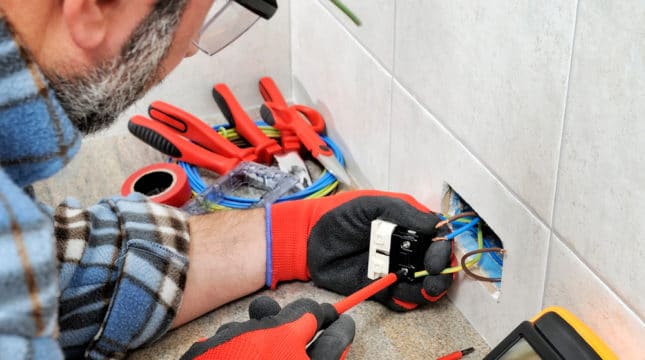Do you need a Nebraska electrician license?
Yes, a license from the Nebraska Electrical Division is mandatory to work as an electrician. Your work scope determines the type of license you need. Here are the options:
- Apprentice: An apprentice level is ideal if you’re learning and assisting in electrical installation, alteration, and repair, as an employee of a licensed electrician.
- Journeyman: A journeyman is suitable if you have the qualifications, training, experience and technical know-how to handle electrical wiring and installation and to supervise apprentices.
- Electrical contractor: A contractor license is best if you have the expertise to plan, lay out, execute and oversee electrical installations for light, heat, power and other purposes.
Each license type has specific qualifications and requirements, ensuring you’re equipped for your chosen electrical work.
How to get an electrician license in Nebraska
The Nebraska Electrical Division streamlines the process with a single application whether you are interested in how to get journeyman electrician licenses, electrical contractor licenses or apprentice licenses.
Submit your Nebraska electrician license application online or by mail. Be sure to include:
- Your application fee (more on that below)
- Mailing addresses for current and previous employers
- A completed United States citizenship attestation form
- A copy of your degree (if applicable)
Journeyman and electrical contractor applicants must also pass an exam. The testing company, Pearson Vue, will send directions on scheduling your exam upon application approval.
The journeyman and electrical contractor exam covers topics such as:
- National Electrical Code
- Nebraska State Electrical Act
- Basic electricity theory
- Blueprint reading
- Emergency circuits, including fire alarm circuits
Insurance for Nebraska electricians
As an electrician in Nebraska, having the right insurance is key to protecting your business and assets. Here are the types of Nebraska business insurance available for electricians.
Workers’ compensation insurance
Nebraska requires you to have workers’ compensation insurance if you have one or more employees. It covers medical expenses, lost wages, and more in case you or an employee experiences an injury on the job.
General liability insurance
General liability insurance can help cover the costs if someone other than an employee slips or falls or if you or an employee accidentally damages someone’s property.
Tools and equipment insurance
Electricians need specific tools and equipment to get the job done. In the case of stolen or damaged work gear, tools and equipment insurance pays for repair or replacement.
Commercial auto insurance
Whether you use a dedicated work vehicle or your personal vehicle on the job, commercial auto insurance can help cover costs related to accidents, such as property damage and medical expenses.
Commercial property insurance
Commercial property insurance can help protect some of the most important things you need to do business, including your equipment, furniture and inventory.
Nebraska electrician license requirements
Depending on the type of license you’re pursuing, you’ll need to fulfill certain education and work experience requirements.
Electrician apprentice license requirements
No education or work experience requirements apply for an electrician apprenticeship. To get this license, you simply register with the Nebraska Electrical Division.
The registration fee for an electrician apprentice is $20 if issued in an even-numbered year or $40 if issued in an odd-numbered year.
Journeyman electrician license requirements
You must have four years of employment by an electrical contractor to apply for a journeyman license. As an alternative, the State Electrical Board will accept three years of experience if you also have a degree in electrical technology from a post-high-school course.
The license fee for a journeyman electrician is $25 if issued in an even-numbered year or $50 if issued in an odd-numbered year.
Electrical contractor license requirements
You have three options to apply for an electrical contractor license:
- Complete a four-year electrical course at an accredited college or university plus have one year of experience as a licensed journeyman electrician
- One or more years of experience as a licensed journeyman electrician
- Five years of experience in planning for, laying out, supervising and installing wiring, apparatus or equipment for electrical light, heat and power.
The license fee for an electrical contractor is $125 if issued in an even-numbered year or $250 if issued in an odd-numbered year.






